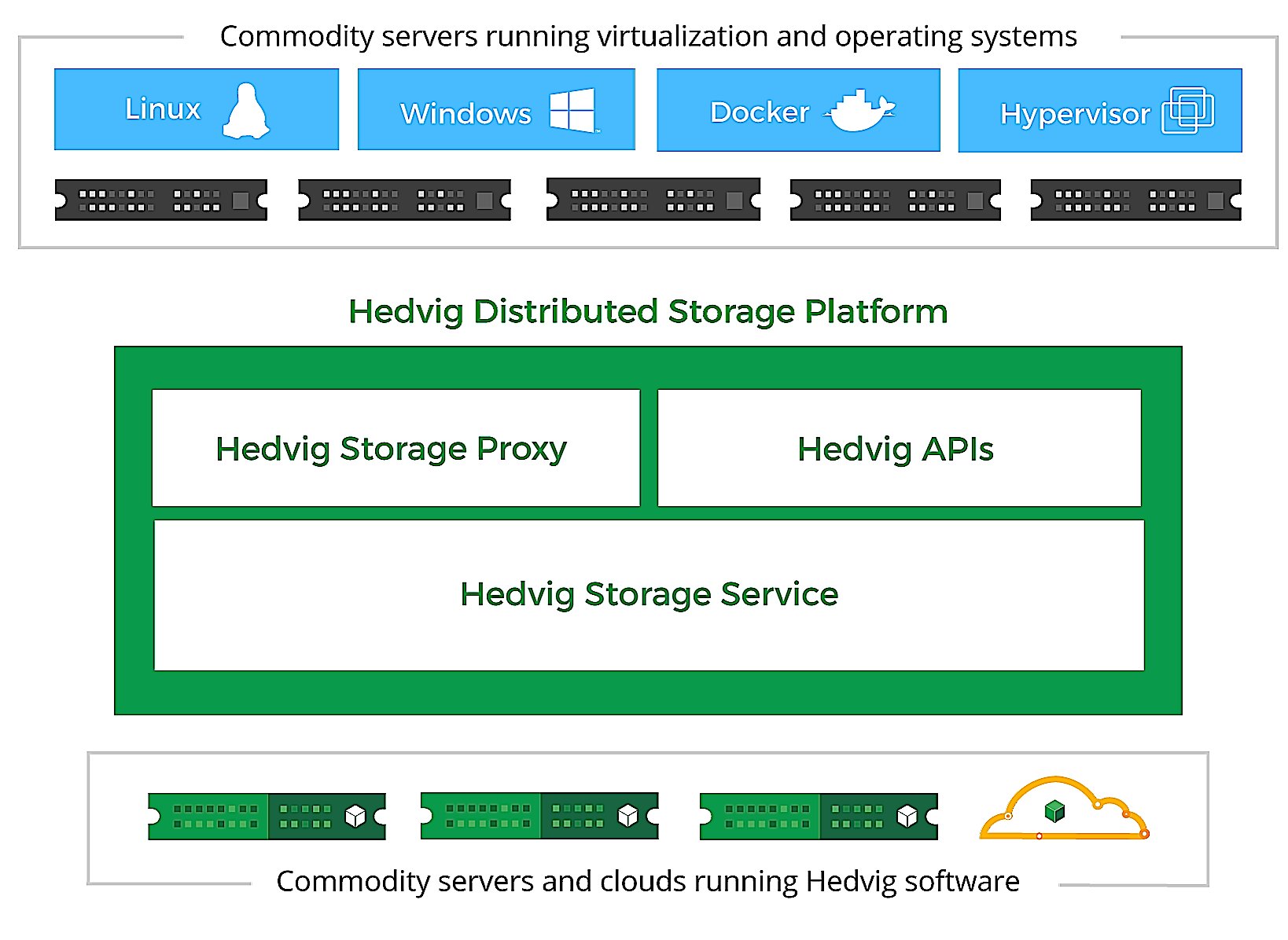Start-Up Profile: Hedvig
New one in software-defined storage
By Jean Jacques Maleval | March 30, 2015 at 2:57 pmCompany
Hedvig, Inc. (formerly Quexascale)
HQs
Santa Clara, CA
Founded in
2012
Funding
- $2.5 million in seed funding in 2012: from True Ventures and Redpoint
- $10 million series A in 2013: from Atlantic Bridge, leading the round, True Ventures and Redpoint
- Total: $12.5 million
- Avinash Lakshman, CEO and founder, co-invented Dynamo while at Amazon (2004-2007), and Apache Cassandra at Facebook (2007-2011).
- Richard Dyke, EVP sales, started his career as employee 92 at EMC and went on to hold several storage executive roles.
- Rob Whiteley, VP marketing, joined from Riverbed and Forrester Research where he held a series of technical and product leadership roles.
- Srinivas Lakshman, VP operations, has over 10 years of developing and optimizing products and business operations.
- Suresh Rajagopalan, VP solutions, has over 20 years experience in managing large server, storage, and network environments.
- Trevia Clark, senior director of marketing, was director, global marketing programs and campaigns, at Riverbed.
Number of employees
25
Technology and product
The start-up has introduced a new type of distributed storage platform being a software-defined offering capable of in-software provisioning of file (NFS), block (iSCSI), and object storage (Swift and S3) that delivers a suite of storage services on commodity servers and clouds.
The platform collapses disparate storage systems into a single platform, creating a virtualized pool that provisions storage. Policy and provisioning processes that normally take hours, days, or weeks take a few clicks and can be performed from mobile devices.
Hedvig does this through a scalable, logical abstraction called a Virtual Disk. Each one is customizable and every storage service can be switched on or off to fit the needs of the workload.
Cluster efficiency and resiliency features:
- Auto-balancing
- Auto-tiering
- I/O sequentialization
- Self-healing
- Tunable, multi-site replication
- Wide striping
Storage services available on a per Virtual Disk basis:
- All-flash and hybrid array configurations
- Disaster recovery replication
- Inline de-dupe and compression
- Server-side caching
- Thin provisioning
- Zero-impact snapshots and clones
Customers use Hedvig to provision storage for legacy, virtualized, cloud and emerging application environments like Hadoop and NoSQL. It also helps customers embrace new compute environments like Docker and OpenStack by removing the storage bottleneck.
Benefits:
- Support all applications and workloads: patented distributed systems capabilities deliver a set of storage protocols and services that are hardware- and compute-agnostic. It eliminates the need for overworked IT departments to continuously deploy new silos of storage for specific applications or workloads.
- Streamline storage operations: The platform provides an user interface with AWS. Admins can provision storage assets from any device and provide self-service access to customers, developers and IT staff, reducing the time and expertise needed to use storage technology.
- Maximize cloud investments with choice: the architecture is cloud-enabled and supports hyperscale and hyperconverged modes, enabling businesses to choose the type of elastic storage that meets their needs. It has the capacity to scale from several terabytes to petabytes and seamlessly spans on-premise, private and public clouds. Customers benefit from an elastic, hybrid cluster that can grow incrementally to thousands of nodes by adding additional commodity servers.
Release Date
March 25, 2015, the product being in limited GA currently and GA to be announced in 2Q15.
Pricing
Not revealed: company has a perpetual license based on storage capacity and tiered for larger volumes.
Roadmap
SMB support for file storage and predictive storage analytics
Channel partners
ACS, Centar, Dovilo, Fabrics4Clouds, Layer8, Rhodix
Known Customers
Dovilo, Intuit, Mazzetti, Rideau, Van Dijk Education, Paul Hastings
Competitors
Incumbent storage solutions, typically monolithic (hardware) storage array providers and emerging storage start-ups, especially in hyperconverged solutions
















 Subscribe to our free daily newsletter
Subscribe to our free daily newsletter

